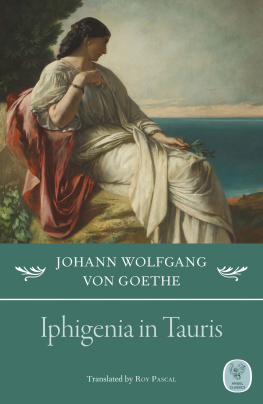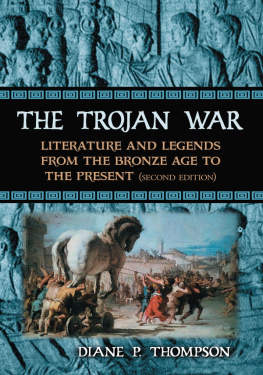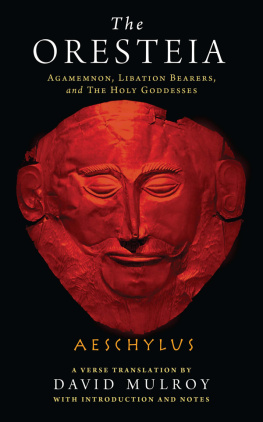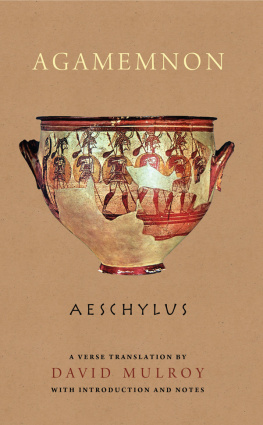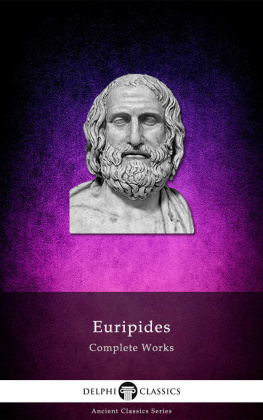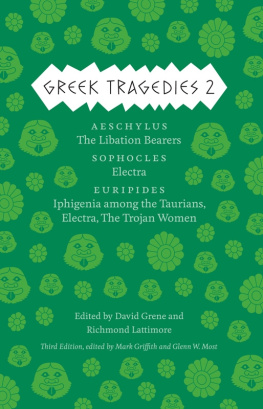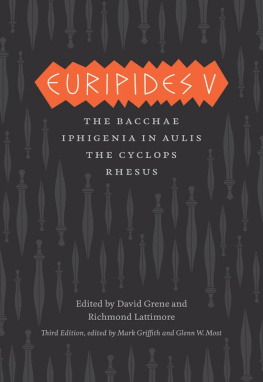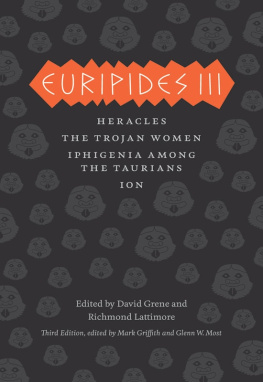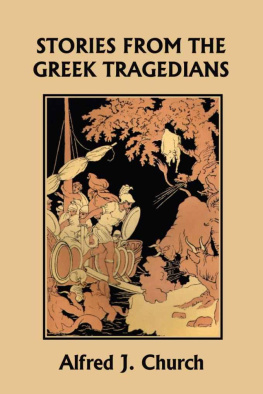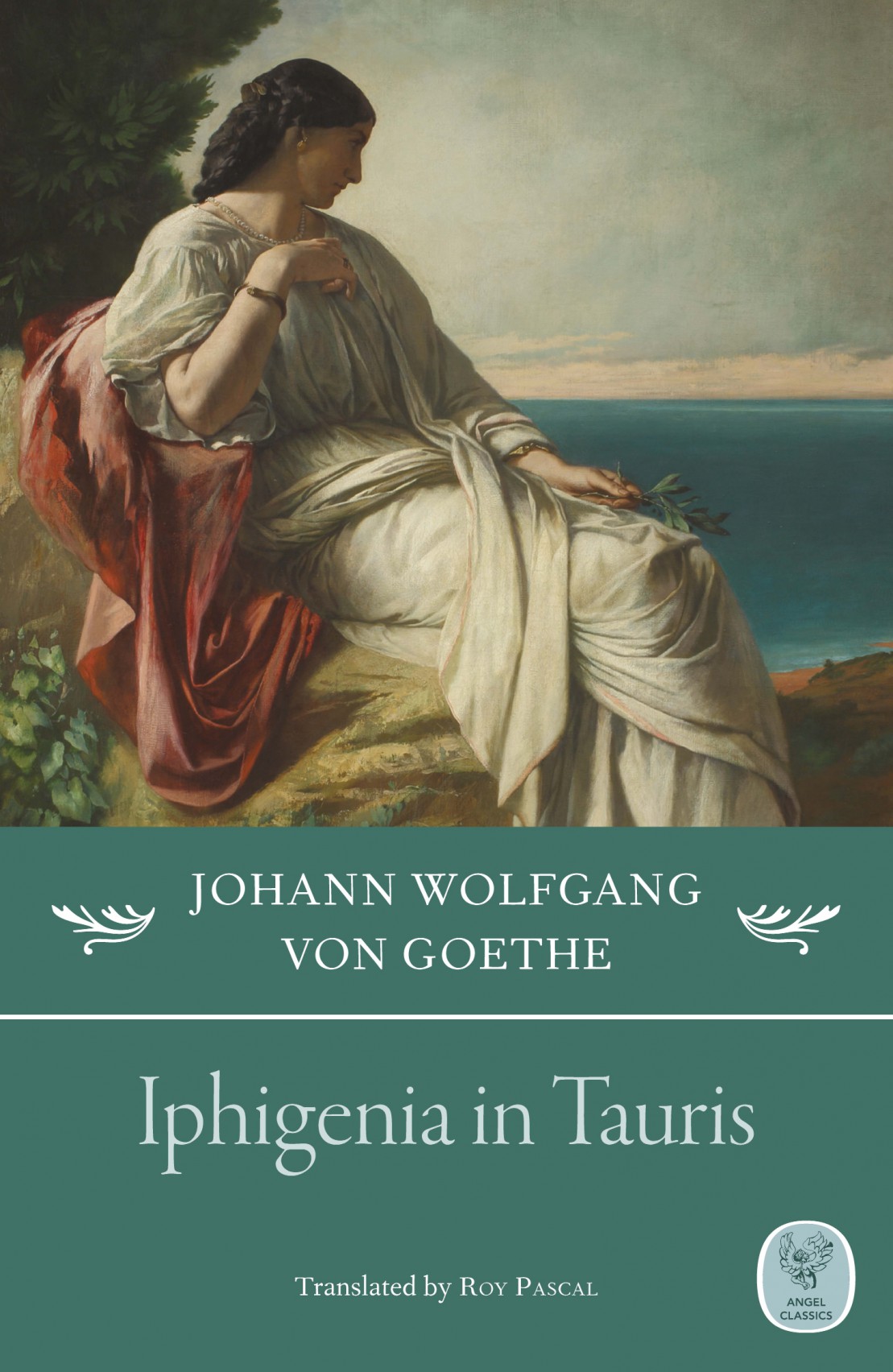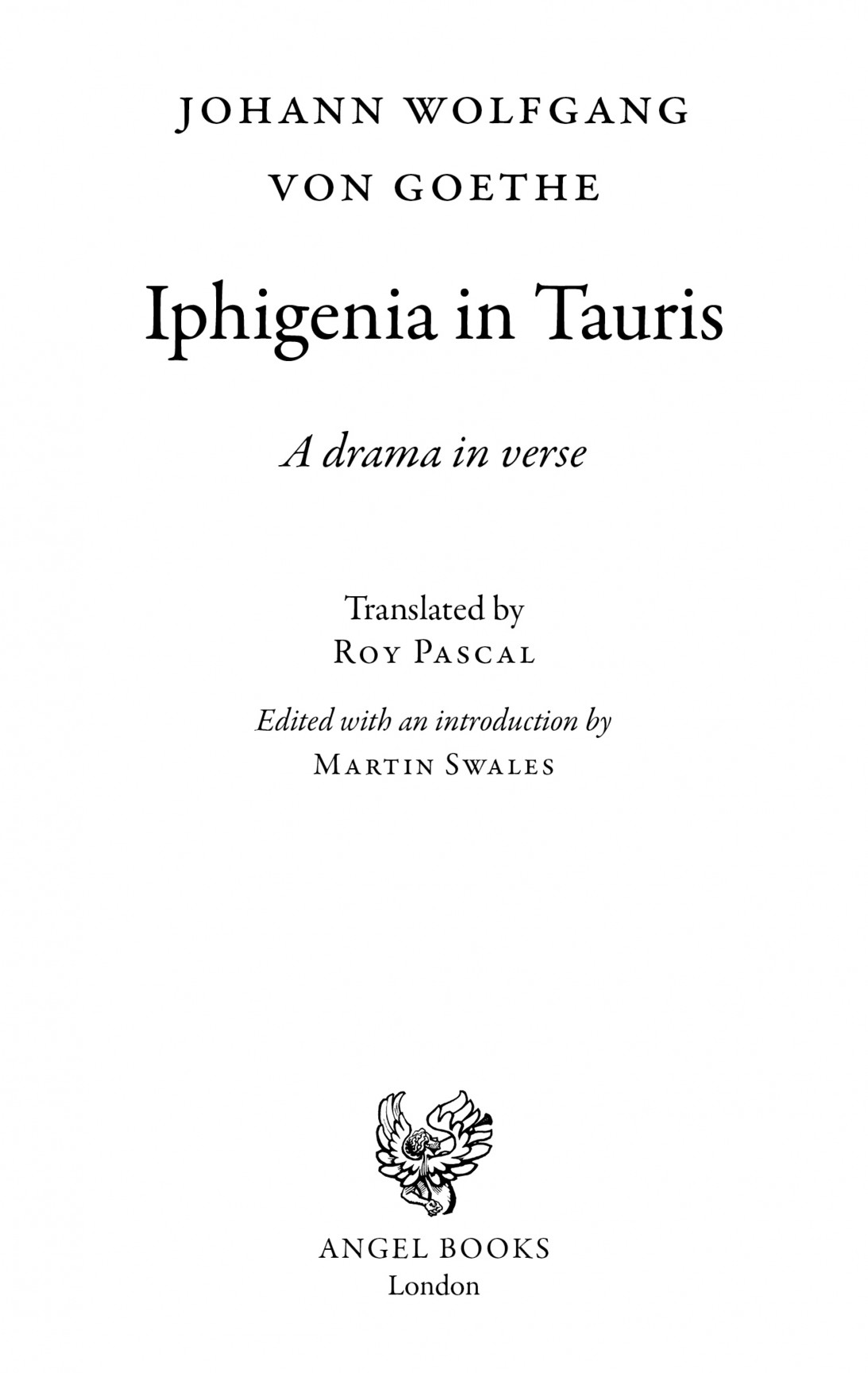G OETHE borrows the central fable of his Iphigenia in Tauris from Euripidess play of the same name.
Introduction
by Martin Swales
G OETHE borrows the central fable of his Iphigenia in Tauris from Euripidess play of the same name.
Both works deal with the exorcism of a curse. Tantalus is a great favourite of the Olympian gods, but his sophistication and independence of spirit attracts their resentment. He is cast down to Hades where he suffers eternal torment; and the curse laid upon him is visited upon his earthly family. Pelops, his son, commits treachery and murder to gain his wife Hippodamia. Their two sons Thyestes and Atreus are consumed by ferocious enmity that leads to gruesome murders of three of their sons. The eldest son of Atreus is Agamemnon who leads the Greek forces in the Trojan War.
His fleet is becalmed at Aulis. Calchas the priest says that the goddess Diana is angry and can be propitiated only if Agamemnon will sacrifice to her his beloved daughter Iphigenia. Agamemnon agrees, and by a trick Iphigenia and her mother Clytemnestra are brought to Aulis. The sacrifice is in process of being carried out, but at the last moment, and unseen by all human observers, Iphigenia is enveloped in a cloud and is taken away to the Tauris peninsula (present-day Crimea) where she serves as priestess in the Temple of Diana. Away from Tauris, the saga of bloodletting continues with the destruction of Troy, after which Agamemnon returns in triumph to Greece. But Clytemnestra, who has never forgiven his readiness to sacrifice Iphigenia, murders him with the help of her lover Aegisthus.
Orestes, her son, kills her, and is persecuted by the Furies for the crime of matricide. He understands from the oracle that he can be cured of his torment only if he goes to Tauris and brings the sacred statue of Diana back to Greece, so that the divine pair of Apollo and Diana, brother and sister, are reunited. This, then, is the prehistory to Iphigenia in Tauris . The events of Goethes play can be swiftly told. The action unfolds in Tauris, far away from the civilised world (as defined by the Greeks). Yet it is precisely the Greeks who are responsible for the ceaseless barbarity of the Trojan Wars, whereas the ruler of Tauris, Thoas the King, is a decent, patient man who has, under Iphigenias influence, rescinded the custom by which strangers coming to the island are sacrificed to Diana.
Thoas is a widower, and he wishes to marry Iphigenia. She cherishes him but does not want to marry him because she hopes one day to return to Greece and to be reunited with her family. Thoas presses his offer of marriage. Not least because she wants to keep him at bay Iphigenia reveals, in Act I Scene 3, what she has hitherto always kept secret from the King her family history, the Tantalid curse. In part because he is clearly hurt at being rejected as a possible husband, Thoas commands her to reinstate the tradition of human sacrifice; he has recently learnt that two strangers have been washed ashore, and they will be the first victims of the new regime. The strangers are none other than Orestes, Iphigenias brother, and his friend Pylades.
Initially they conceal their true identity; but Orestes, sensing the full measure of Iphigenias humanity and goodness, tells her the truth he tells her who he is and what he has done. The very act of confiding in her starts to bring release from the lacerating feelings of guilt that haunt him. A plan is devised to fulfil the terms of the oracle to steal the statue of Diana and to escape with it to Greece. Central to the plan is a lie: Iphigenia is to tell Thoas that the statue has been defiled by the presence of the two strangers and that it needs to be cleansed in the sea. But Iphigenia cannot bear to lie to Thoas who has been so good to her. She tells him the truth.
The conflict seems irreconcilable. But Orestes realises that the words of the oracle (which he now quotes) have a double meaning. The sister who is destined to return to Greece and to provide healing is Orestess sister Iphigenia and not Apollos sister Diana. The sacred statue does not, in other words, have to leave Tauris. Thoas is persuaded to let the Greeks return home. 1).The first is, as we have seen, the exorcising of a curse. 1).The first is, as we have seen, the exorcising of a curse.
That curse entails appalling bloodshed, bloodshed caused both by spontaneous deeds and by brutal acts of calculated retribution. Those retaliations, far from allaying the grievances, serve to exacerbate them, to perpetuate the cycle of violence. 2). At the heart of that cycle of violence is the act of sacrifice. Agamemnon is persuaded to sacrifice his daughter; Thoas orders Iphigenia to reinstate the custom of human sacrifice in Tauris. 3).The curse runs through the generations of one specific family, the house of Atreus; the family, like the temple, is both a place of unique comfort and support and of desperate feuding. 4). 4).
At crucial junctures in the play the family story (or part of it) is told. The issue of traumatic events being spoken of, of the past being brought into the present, of previous events becoming present awareness, is all-important. 5). Central to both the prehistory and the story of the play is the process of patterns repeated, of events from the past recurring in (perhaps determining) later experiences. In the Tantalid family, every generation produces its nexus of violence between siblings, between parents and children. The arrival of Orestes in Tauris seems to continue the pattern: he will die at the hands of the priestess who is none other than his sister.

